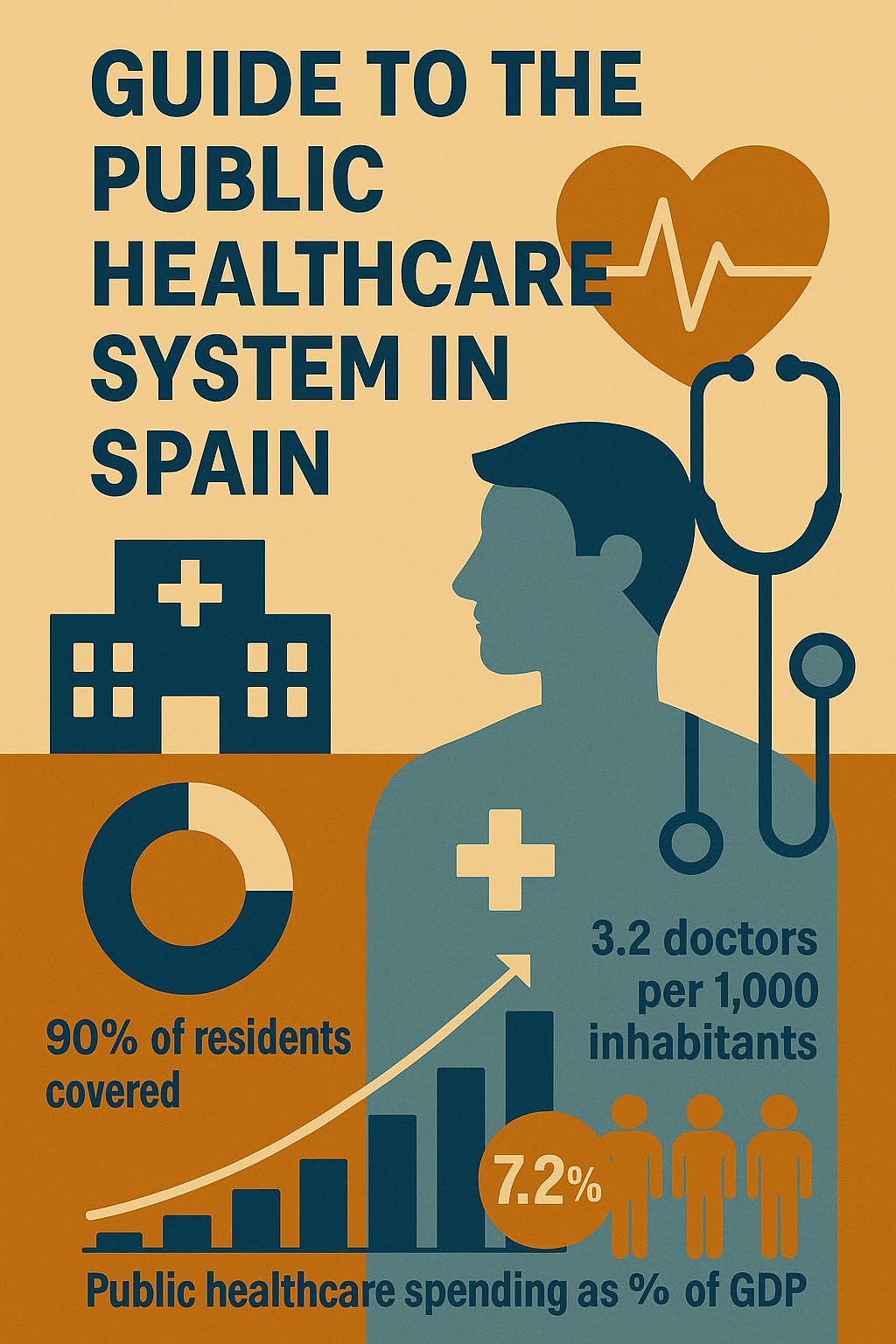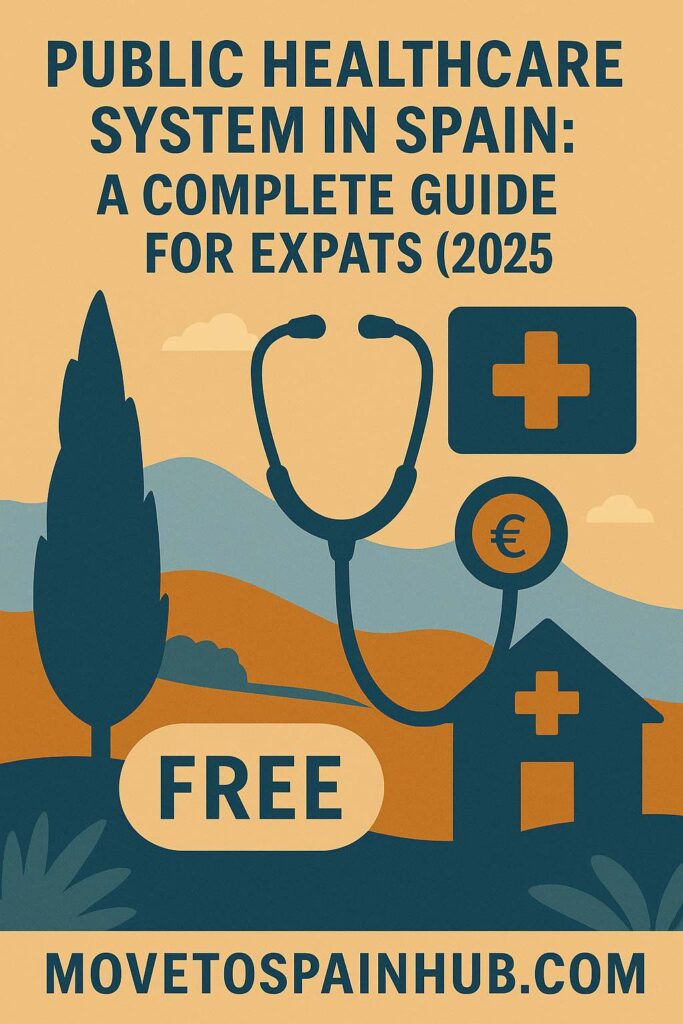1. Overview of Spain’s Public Healthcare System
The Spanish public healthcare system is tax-funded and decentralized. Each autonomous community (such as Catalonia, Andalusia, or Madrid) manages its own healthcare services, but the standards are set nationally. Services are either completely free or require a small co-payment for prescriptions.
2. Who Is Eligible for Public Healthcare?
Eligibility is based primarily on residency and employment. You can access the public system if you fall into one of the following categories:
- Residents working in Spain: Employees and self-employed workers pay contributions through the social security system, which grants them and their families access to public healthcare.
- EU citizens: With an EHIC (European Health Insurance Card), EU visitors can receive emergency care. Long-term residents need to register in the Spanish system.
- Non-EU expats: After obtaining a residency permit and registering with social security, non-EU residents can also access public healthcare.
- Pensioners: Retirees from the EU can often transfer their healthcare rights to Spain using the S1 form.
- Unemployed or low-income residents: In many cases, you may still qualify for public healthcare if legally resident in Spain.
3. How to Register for Public Healthcare
To use the system, you’ll need to follow these steps:
- Register your residency at your local town hall (empadronamiento).
- Get your NIE (Número de Identificación de Extranjero), required for all legal and financial processes in Spain.
- Register with social security at the Tesorería General de la Seguridad Social.
- Obtain your health card (Tarjeta Sanitaria Individual, TSI) at your local health center. This card allows you to access doctors, specialists, and hospitals.
4. What Is Covered?
The Spanish public healthcare system covers a wide range of services, including:
- General practitioner visits
- Specialist appointments (with a referral)
- Emergency services and hospital care
- Maternity and pediatric care
- Preventive care and vaccinations
- Prescription drugs (with co-payment depending on income)
5. What Is Not Covered?
While very comprehensive, the system does not cover everything. Some of the common exclusions include:
- Dental care (except emergencies and basic pediatric dentistry)
- Optical services such as glasses and contact lenses
- Cosmetic procedures
- Some physiotherapy and alternative treatments
Because of these gaps, many expats choose to combine the public system with a private health insurance policy to ensure broader coverage and faster access to specialists.
6. Strengths of the Spanish Public Healthcare System
- High-quality care: Spain consistently ranks among the top healthcare systems in the world.
- Low cost: Most services are free at the point of delivery.
- Accessibility: Public hospitals and clinics are widely available, even in smaller towns.
- Universal coverage: Everyone who qualifies as a resident has access.
7. Common Challenges
- Waiting times: Non-urgent procedures and specialist referrals may involve long waits.
- Language barrier: In rural areas, not all doctors speak English, which can be difficult for newcomers.
- Regional differences: The quality and speed of service can vary depending on the autonomous community.
8. Public vs. Private Healthcare
While the public system is sufficient for most needs, many expats consider private healthcare as a complement. The main differences include:
- Public system: Free or very low cost, but longer waiting times and less choice of specialists.
- Private system: Faster appointments, English-speaking doctors, and access to private hospitals, but with higher costs.
For a detailed comparison, see our guide on public vs. private healthcare in Spain.
9. Tips for Expats Using the Public System
- Always carry your health card (TSI) when visiting a doctor or hospital.
- Learn basic Spanish medical vocabulary to ease communication.
- If you need faster access, consider a hybrid approach with both public and private insurance.
- Register with your nearest health center as soon as possible after moving.
Conclusion
The public healthcare system in Spain is a major benefit for residents and one of the reasons many expats choose to live here. With its high quality, affordability, and accessibility, it ensures peace of mind for families, retirees, and workers alike. However, combining it with private insurance can provide the flexibility and coverage many expats prefer.
📺 Watch Next
Check out this video guide on Spain’s healthcare system for expats:
Healthcare in Spain: The TRUTH About Costs & Quality:


Pingback: Best Health Insurance Options for Expats in Spain (2025) - Move to Spain hub
Pingback: Public vs. Private Healthcare in Spain: What Expats Should Know (2025) - Move to Spain hub